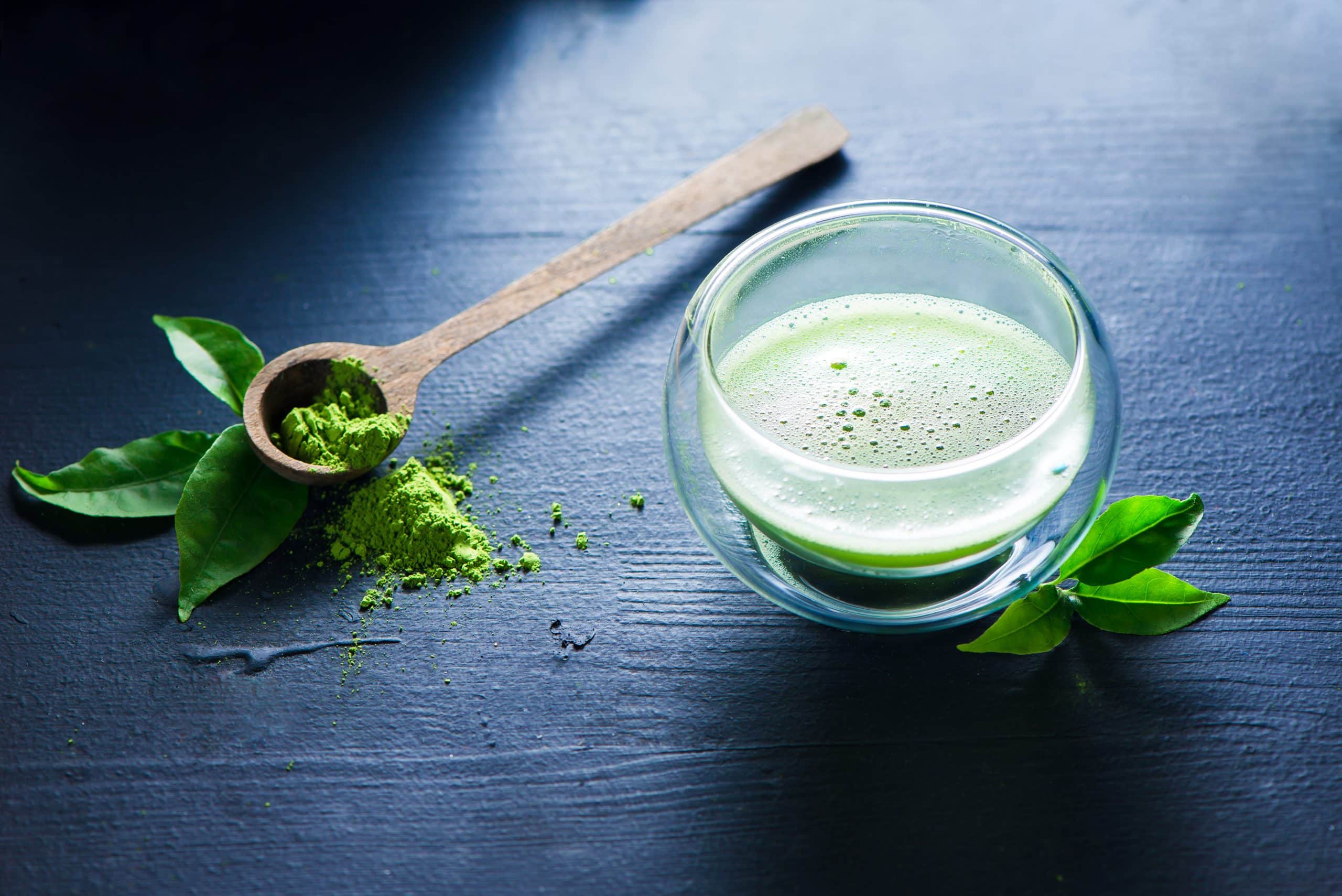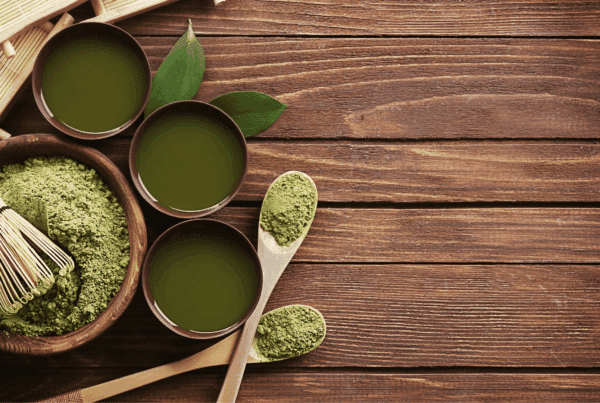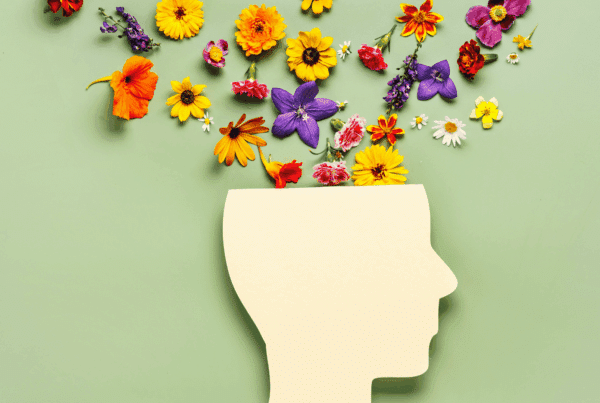Green tea has always been known for its incredible effects on human health. Although it does not grow naturally in our regions, in recent years it has become as domesticated as mint, chamomile or sage.
It is interesting that three types of tea: green, white and black originate from the same plant: Camelia Sinesis. What differs is the process of cultivation, production and processing.
There are a large number of producers on our market and you must have already heard about the benefits of regular consumption of green tea. Matcha tea is also one type of this wonderful drink, and below we will reveal to you why it is extremely popular today among all those who take care of their health.
What is Matcha tea?
Matcha tea, which means "ground tea" in Japanese, is a carefully prepared powder made from the leaves of the "Tencha" plant. After picking, the leaves are steamed, dried and ground into a fine powder. Only the finest parts of the leaf without stems and veins are used, making the production of matcha tea a complex process and even a kind of art. Matcha has its origins in China, but in Japan it has become a key part of the tea ceremony, valued for its health and ritual values.
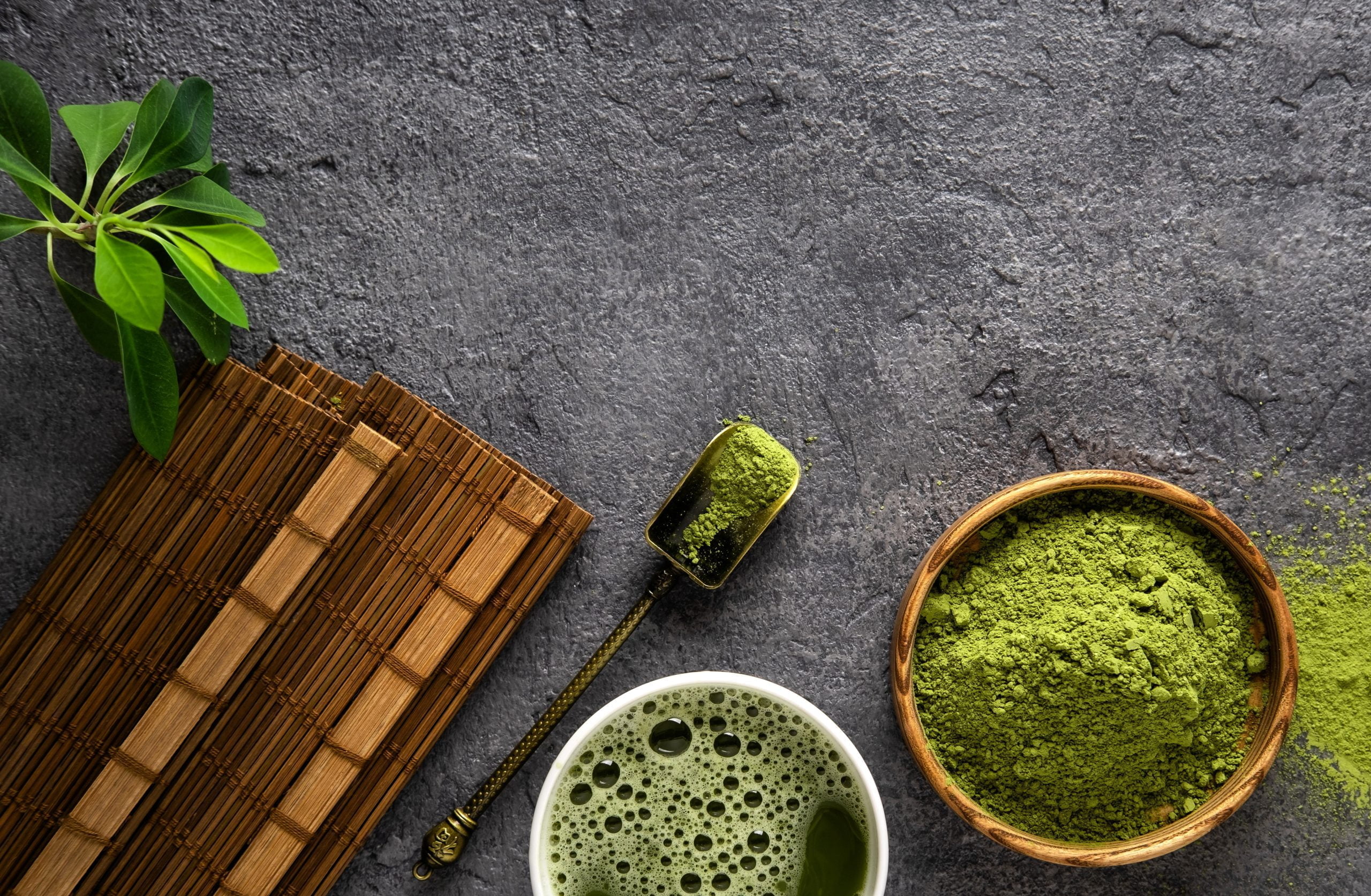
How is Matcha tea made?
What makes Matcha different from ordinary green tea is first of all the method of cultivation. In the production process of Matcha, the leaves are hidden from the sun for several weeks before picking (usually three to four weeks). When grown in this way, the plant becomes "confused" and begins to increase the production of chlorophyll and theanine, so the leaves are smaller and dark green in color, and the medicinal properties are increased many times over.
Also, Matcha leaves are harvested a little earlier than regular green tea, by hand, then steamed for a short time, dried and separated from the stems and leaves. The leaf is then ground on a stone mill, slowly and at a lower temperature. This is a long-term process that requires attentiveness, patience and skill of the producer - somewhere you can even find information that only 30 grams of Matcha can be obtained in this way in an hour of grinding! For this reason, the highest quality Matcha is more expensive than regular green tea, but it also brings multiple health benefits that will justify its price.
When drinking any type of tea, it is common to remove the filter bag or strain the herbal mixture. With Matcha, we consume the whole leaf because the fine powder dissolves completely in water. In this way, we take in much more nutrients and just one cup of Matcha tea can replace 5-10 cups of regular green tea!
Health benefits of Matcha tea
So what does Matcha contain that makes it so drastically different from other teas? Let's see.
Matcha tea is actually concentrated green tea and is abundant catechins - with natural polyphenols that neutralize free radicals, protect against cancerous diseases and are one of the most powerful antioxidants. Catechins strengthen capillary walls and help absorb vitamin C, which then binds to toxins and heavy metals to rid the body of them.
When we drink ordinary green tea, depending on the variety and picking, we only take in 10-20% of nutrients, while with Matcha, that number rises to 100%! Matcha contains the highest concentration of antioxidants of any known fruit and vegetable, so it's no surprise that it has been consumed in Japan for hundreds of years on a daily basis. The Japanese are considered to be extremely healthy, youthful and long-lived people, so the whole world wants to try their tips for a healthy life. Matcha has become increasingly popular among the Western world in recent years, and we know exactly why!
Matcha tea contains vitamins A, B, C, E as well as magnesium, zinc, potassium, carotene, amino acids and L theanine, which together protect our body from various infections and strengthen immunity. As Matcha is a very powerful antioxidant, the body is cleansed of toxins and free radicals that affect premature aging. With the help of vitamins A and E, skin and hair become radiant and shiny. Theanine from Matcha reduces the level of stress, stimulates the production of dopamine and is therefore beneficial for immunity and the psychophysical state of the body.
Matcha is one of the sources of caffeine, so it can become a healthier option for morning coffee, and it also accelerates metabolism, thus helping to regulate body weight. Considering that it stimulates the rapid burning of calories, if it is drunk on an empty stomach in some people it can cause mild nausea, so if you have not consumed it before, make sure to eat a healthy breakfast or at least a healthy snack before drinking the tea.
This special concentrated type of green tea accelerates the metabolism and supports weight loss, so we can safely say that it is one of the excellent dietary supplements if you want to lose extra pounds. Catechins from Matcha tea help the body burn fat up to four times faster than average!
Also, Matcha tea has no side effects on your health, as diet supplements that promise fast and effective weight loss might have.
If you are on a special diet aimed at losing weight and speeding up your metabolism, Matcha will become your best ally. And the best thing - one cup of tea a day is enough, because it is extremely concentrated. You can drink it as "regular" tea or as a latte, with the addition of milk, honey, agave syrup or some other sweetener.
Matcha tea and weight loss
In today's busy lifestyle, stress often leads to irregular meals and increased cravings for unhealthy snacks. In those moments, matcha tea can be a refreshing and healthy companion. Matcha contains catechins and caffeine, which together stimulate thermogenesis - the process of burning calories.
Catechins, powerful antioxidants, help break down fat, and in combination with caffeine, increase the body's energy consumption. Research published in American Journal of Clinical Nutrition showed that consumption of matcha tea can increase the rate of calorie burning by up to 43%. Regular consumption of matcha tea can contribute to weight loss in a natural and healthy way.
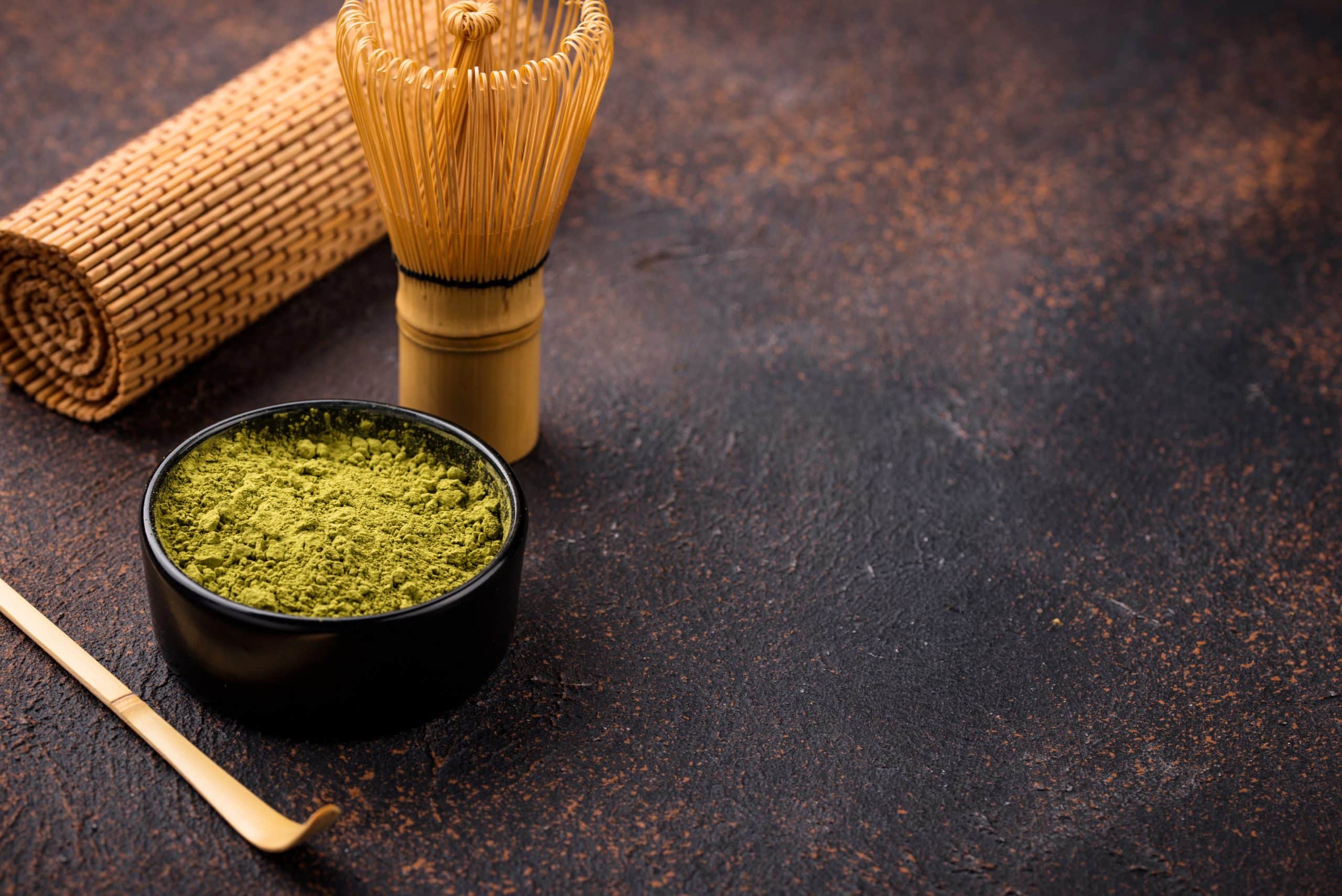
Nutritional values of Matcha tea
One gram of Matcha tea contains:
- 306mg protein
- 272mg amino acids
- 50mg lipids
- 27mg potassium
- 2.3 mg of magnesium
- 4.2mg calcium
- 0.062mg zinc
- 3.5mg phosphorus
- 0.17mg iron
Matcha and caffeine
Matcha tea contains more caffeine than most teas, making it an excellent source of energy. However, for those who are sensitive to caffeine, it is recommended to start with smaller amounts. Due to its high caffeine content, it can be used as a substitute for morning coffee, but may cause mild nausea in some people when consumed on an empty stomach. If this is the case, it is recommended that you eat a light meal first.
Types of Matcha tea
According to the method of production, there are three types of Matcha tea: standard, ceremonial and cooking Matcha.
Depending on the method of production, its quality will also depend. This last type is used in cooking (for sprinkling on ice cream, for example), standard Matcha is a powder of satisfactory quality, while for ceremonial matcha absolutely all traditional methods of preparation of this green gold must be respected. Ceremonial Organic Matcha is mostly in small packages and is of superior quality.
How to determine the quality of Matcha tea?
Not all Matcha is the same, the color of the powder will confirm that most obviously. Real Matcha tea is a bright, dark green powder. If it has a yellowish shade, it is highly likely that not all production processes have been followed, it is of lower quality and does not have the same effects as the bright, green powder traditionally produced. Check carefully from which manufacturer you will buy it, the unrealistically low price compared to others on the market is also a sign that the quality of that tea is questionable.
How to store matcha tea?
Storing matcha powder requires special care. Matcha is very reactive and oxidizes easily, which is why it is best stored in dark, sealed tin containers to protect it from light and air. For optimal taste and freshness, matcha is recommended to be consumed within a year of harvest.
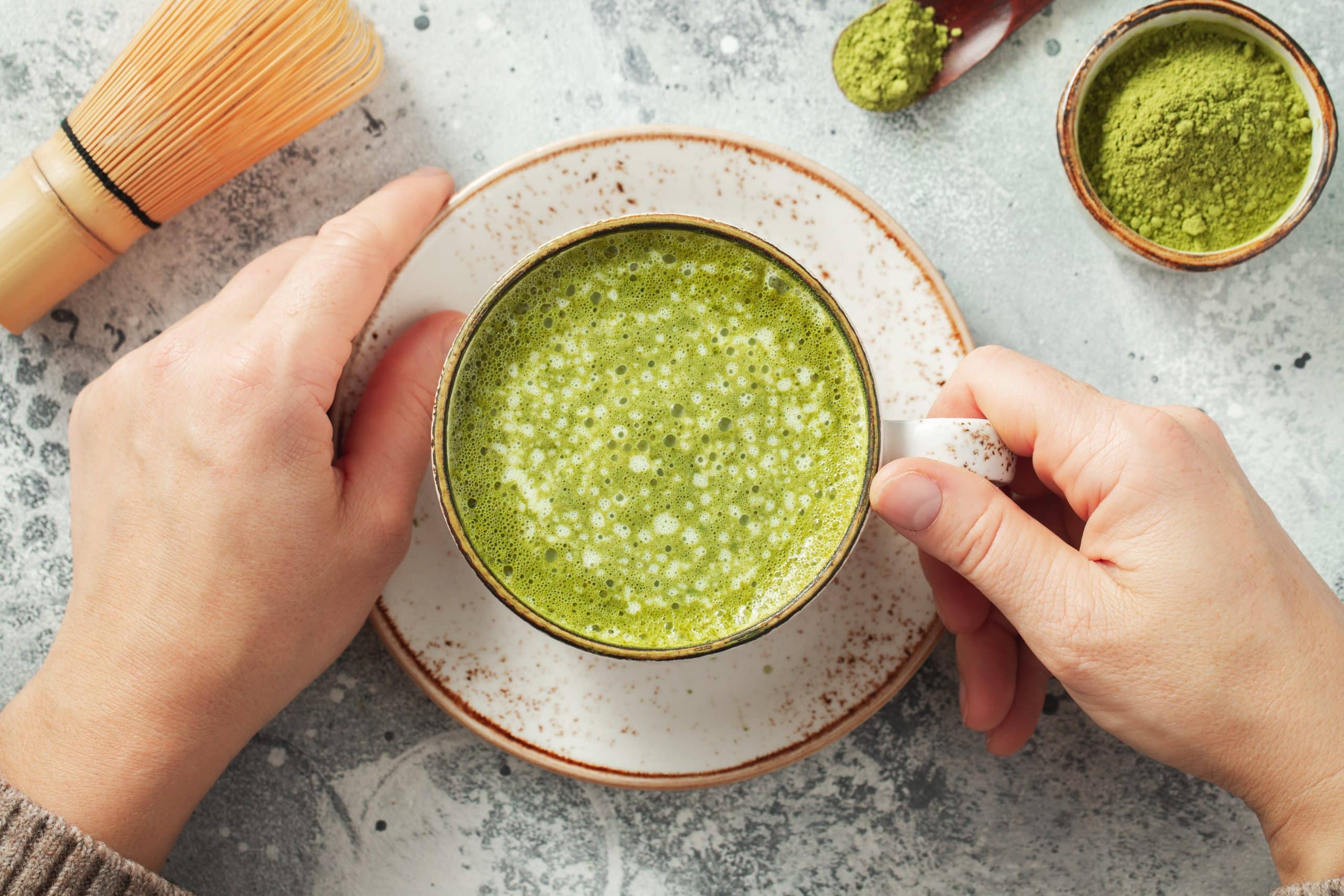
The process of preparing Matcha tea
The first step in the process of preparing Matcha tea is, of course, choosing a quality powder.
Preparation begins with heating the water to exactly 80 degrees Celsius. If you want a milder taste of tea, you can heat the water to 70 degrees. A higher temperature can increase the bitterness of the tea, so it is very important to follow the temperature of the water precisely.
While the water is heating, in a bowl (known as Chawan) one to two scoops are placed Matcha powder, depending on the desired intensity. The measure used is called chashak.
When the water has reached the appropriate temperature, pour one portion into a bowl. Start with just a little water, just enough to make a paste. The paste is made using a special whisk called chase, which is usually made of bamboo.
After you have obtained a smooth paste, add the rest of the water. After adding the rest of the water, stir the mixture in a quick 'W' shape until it forms a nice, silky foam on top.
And voila! Your matcha tea is ready!
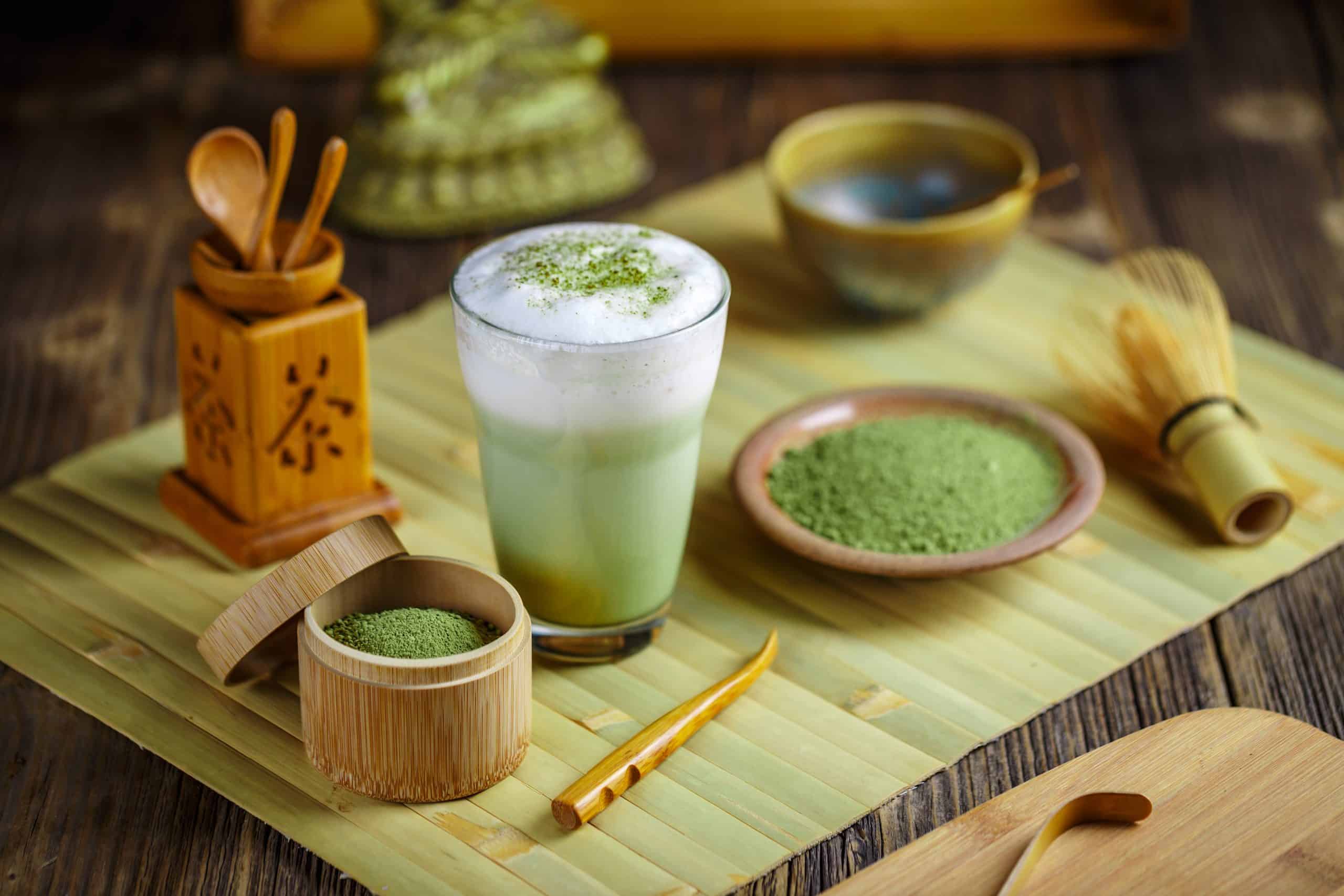
Matcha Latte Recipe
For one cup of matcha latte you need:
- 1 teaspoon matcha powder (preferably high quality)
- 2 dl milk of your choice (we recommend almond or oat milk)
- 1 teaspoon honey or other sweetener as desired (optional)
- Hot water
Preparation
- Prepare the matcha tea paste: See the recipe above for the Matcha tea preparation process and follow the steps required to prepare the matcha paste
- Heating milk: In parallel with the preparation of the tea, heat the milk of choice to boiling point. If you like a frothy latte, you can froth it using a special frother. Using a steamer can cause the milk to overheat, which can make your matcha latte more bitter than you want.
- Preparing Matcha latte: Add honey or sweetener of choice to a warm cup and top with matcha paste. Stir gently, then pour warm milk over it.
The most frequently asked questions about Matcha tea
What happens if you drink Matcha tea every day?
Daily consumption of matcha tea brings numerous benefits. Matcha is a concentrated version of green tea, rich in antioxidants, vitamins and minerals. Regularly drinking matcha tea ensures a stable level of energy throughout the day, thanks to the gradual release of caffeine. Along with energy, matcha also helps improve concentration and mental clarity thanks to the combination of caffeine and L-theanine, an amino acid that reduces stress and improves focus.
In addition, matcha tea contributes to strengthening the immune system and speeding up metabolism, which can help regulate body weight. Many people also notice positive changes in mood and emotional balance - every cup of matcha tea is an opportunity for a moment of relaxation and enjoyment.
How many cups of Matcha tea can I drink a day?
For optimal results, it is recommended to consume 2-3 cups of matcha tea per day, which corresponds to 1-2 grams of matcha powder. This amount allows for the intake of antioxidants and other nutrients while keeping caffeine under control. Matcha is a natural source of energy, but it's important to balance your enjoyment of this beverage according to your needs and sensitivity to caffeine.

